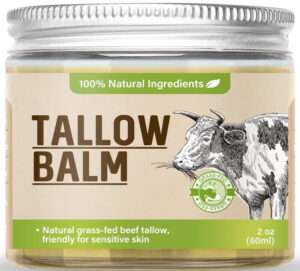No products in the cart.
No products in the cart.
If you’re tired of alcohol dictating your life, you’re not alone. Drinking might start as a way to unwind, but it often ends up creating more stress, health problems, and broken connections with loved ones. The good news? You can choose something better. Sobriety isn’t just about giving up alcohol—it’s about gaining clarity, health, and a real shot at happiness. Whether in the UK or the US, help is available through trusted resources like Alcoholics Anonymous, local support groups, and professional counselling services. The first step is deciding: your life is worth more than another drink.
For inspiration, check out this YouTube video: https://www.youtube.com/watch?v=zjDT6fQEEaE
Living sober isn’t just about quitting alcohol—it’s about tackling the root of the problem head-on. To truly reclaim your life, it’s essential to understand what alcohol dependency is, recognize its signs, and learn about its impact. Knowing the full picture doesn’t just build awareness; it empowers you to take back control.
Alcohol dependency, often referred to as alcoholism, is more than just “liking a drink.” It’s a chronic disease where a person becomes both physically and mentally reliant on alcohol. While casual drinking might start as a way to socialize or de-stress, for some, it progresses into an uncontrollable habit. This shift happens gradually—what starts as having a few drinks on weekends can spiral into daily drinking just to function.
Dependency creeps in when alcohol cravings and withdrawal symptoms take over. People might find that they can’t stop drinking despite wanting to. It’s important to note that this is not a lack of willpower; it’s a serious condition. Drinkaware offers helpful insights into how dependency develops and its broader health implications.
Sometimes, spotting alcoholism in yourself or someone else can feel tricky—it doesn’t always look like the stereotypical extreme. Many individuals hide their struggles well, but certain markers can help identify when casual drinking has crossed the line. Here are the key signs:
Curious about what these signs might look like for yourself or a loved one? The Mayo Clinic breaks down the symptoms of alcohol use disorder here, making it easier to identify if help is needed.
Excessive alcohol consumption doesn’t just harm your liver. It has a ripple effect on your physical health, mental well-being, and social connections:
If reading this resonates with you, know there’s no shame in seeking support. Both in the UK and the US, there are resources tailored to guide alcoholics toward recovery, from counselling to local support groups. Recognizing the problem is the first—and most important—step to choosing life over alcohol.
Deciding to live a sober life means much more than just putting down the bottle. It’s a life-altering choice that improves your health, empowers you to rebuild relationships, and gives you the tools to rediscover your true self. For many, choosing sobriety is the first step toward an entirely new chapter filled with clarity, purpose, and growth.
Think about this: your body and mind are like a car. When fueled with alcohol, that “engine” can start to sputter, harm other parts, and break down before its time. But when you swap out alcohol for water, healthy foods, and exercise, everything starts running smoother.
Here’s why sobriety transforms your overall health:
Living sober isn’t just a favour to your liver; it’s a full-body refresh. Curious about other physical benefits? Explore this resource on how living alcohol-free changes lives.
If alcohol has impacted your personal relationships, you’re not alone. Miscommunication, broken trust, and emotional disconnection are common outcomes of alcohol abuse. But here’s the thing—choosing sobriety is one of the most powerful tools to repair and strengthen bonds with the people you care about.
Here’s how sobriety leads to meaningful connection:
Rebuilding relationships may be tough at first, but it’s absolutely doable. Check out these actionable tips on repairing relationships damaged by addiction to take the first step.
Sobriety isn’t just about stopping something negative; it’s about starting something extraordinary. When alcohol is no longer consuming your time, money, and energy, you can channel those resources into personal development. It’s hard work, yes, but totally worth it. Imagine unlocking a version of yourself you haven’t seen in years—or maybe ever.
Here’s what sober personal growth can look like:
Quitting alcohol is one of the best decisions anyone can make for personal growth and fulfilment. To see how others have transformed their lives, read this story on how sobriety revitalizes your soul.
Sobriety isn’t just about surviving without alcohol—it’s about thriving in its absence. With healthier choices, stronger relationships, and renewed personal paths, it’s clear why choosing sobriety is worth every single effort.
Choosing to embrace sobriety is the first step in taking charge of your life, health, and happiness. It’s a bold decision that requires courage and self-awareness. If alcohol has become more of a burden than a relief, it’s time to push the reset button. Below, we’ve broken down three critical steps to guide you on this transformative path.
Acknowledging that you have a problem with alcohol is the cornerstone of any recovery process. This isn’t about shame or guilt; it’s about being honest with yourself. Take a moment to reflect on how alcohol impacts your life. Are you using it as a crutch to escape stress or pain? Is it affecting your health, relationships, or career? Recognizing the problem is the first—often hardest—step.
Here are a few questions to help with self-reflection:
Answering “yes” to any of these might suggest it’s time to explore sobriety. Remember, there’s no weakness in asking for help. Strength comes from taking responsibility. If you’re unsure if your drinking is a problem, Alcohol Change UK offers helpful tools for assessment and support.
Recovery isn’t something you do alone. Surrounding yourself with the right people can make all the difference during your journey to sobriety. Start by identifying who in your life genuinely wants to see you thrive. These are the people who’ll stand by you through highs and lows.
Here’s how to create a supportive environment:
Recovery is a team effort. Don’t hesitate to lean on supportive friends while also finding professionals who understand what you’re going through.

Photo by cottonbro studio
Sometimes, tackling alcohol dependence requires more than willpower alone. This is where professional support steps in. Seeking therapy, rehab, or medical treatment doesn’t mean you’ve failed—it means you’re serious about recovery.
Here’s why professional help matters:
If there’s one takeaway here, it’s this: you don’t have to fight alcohol addiction alone. With the right tools and people on your side, your path to a sober, happier you is entirely possible.
Choosing sobriety is a massive step, but it’s one you don’t have to take alone. There are numerous resources available to guide you through this transition, whether you’re looking for professional help, peer support, or self-help tools. Here’s how to find the right assistance in your journey toward a better, healthier life.
If you’re in the UK, there are trusted organizations offering guidance and support for alcohol dependency. Whether you’re looking for professional counselling, group meetings, or family-focused programs, there’s help available.
Whether you’re seeking therapy or a support group, the UK boasts a wide array of resources designed to help you take back control of your life.
For those in the United States, support systems are also widely accessible, including community groups, hotlines, and state-specific services. Help is always just a call or click away.
No matter where you’re located in the US, there are networks ready to help you lead a sober, healthier life.
Sometimes, the easiest first step toward seeking help is online. Digital platforms provide anonymity and convenience, making it easier to connect with others who understand the challenges of sobriety.
The online space can be a haven when you need encouragement, advice, or even a reminder that you’re not alone. Wherever you are, there’s a community ready to welcome and support you.
Sobriety is a path lined with challenges, but each obstacle is an opportunity to reclaim control over your life. Whether it’s resisting the pull of cravings, learning how to recover after setbacks, or finding new ways to fill your time, you don’t have to face these hurdles alone. With the right tools and mindset, conquering these challenges becomes not only possible but empowering.

Photo by Brett Jordan
One of the most common challenges in sobriety is dealing with triggers and cravings. Triggers can sneak up on you—a certain smell, place, or even a particular mood can ignite the urge to drink. Remember, cravings are temporary, but how you handle them can make a lasting difference.
Here are effective techniques to handle triggers and cravings:
Having a plan in place to manage triggers adds a layer of security to your sobriety journey. For actionable tips, check out this guide on managing cravings and triggers.
Relapses happen—they’re part of the recovery process for many. But remember: a relapse doesn’t mean you’ve failed. It’s simply a detour, not a dead end.
Here are steps to handle relapses constructively:
No journey of growth is linear, and every stumble teaches an important lesson. For a deeper perspective, this guide on relapse prevention offers great insights.
Let’s be honest: when you stop drinking, you suddenly find yourself with a lot of free time. Filling that void is crucial—it’s your chance to redefine your life with intentional, fulfilling choices.
Some ways to build healthy habits and discover new interests include:
The key is to find what sparks joy for you. Not sure where to start? This guide on building habits to replace drinking offers some excellent ideas.
Overcoming challenges in sobriety is tough, but it’s also one of the most rewarding achievements of your life. Each trigger navigated, relapse overcome, and new habit formed marks progress that strengthens your resolve to live sober.
Sobriety is a life-changing decision that brings clarity, health, and hope. Choosing life over alcohol means breaking free from its grip and creating space for meaningful connections, personal growth, and genuine happiness. It’s proof that every day can be better than the last.
Resources are available to walk alongside you on this journey. In the UK, organizations like Alcoholics Anonymous UK and the NHS Alcohol Support Services provide accessible guidance. For those in the US, SAMHSA and Alcoholics Anonymous offer support networks designed to help individuals and families impacted by alcohol misuse.
Let this be your sign to take the first step. Whether you’re ready to reach out for support or just starting to imagine a life beyond alcohol, know that change is possible. You’re not alone, and the tools to rebuild a brighter, sober future are within reach.
If you want or need assistance with this article, please don’t hesitate to Contact Us



